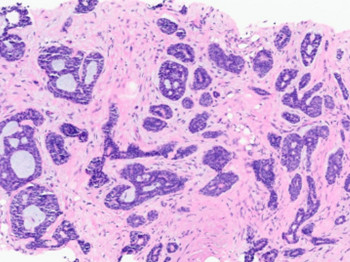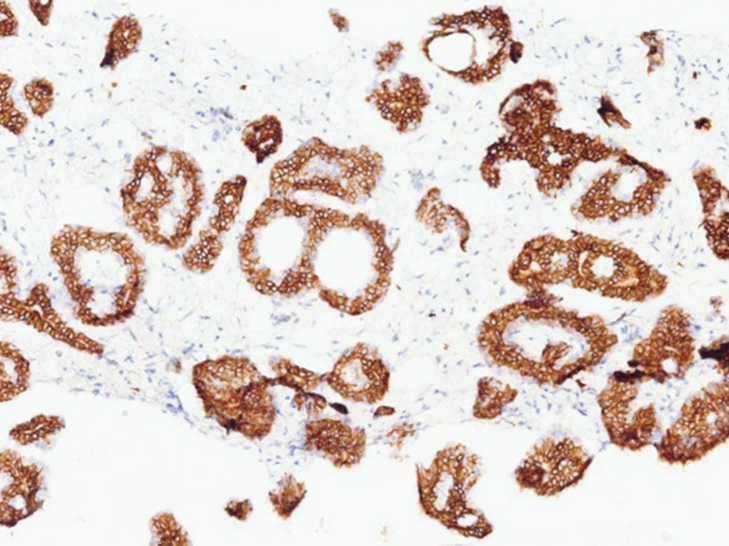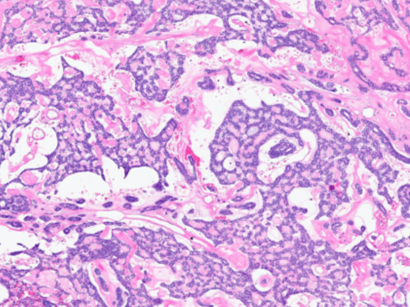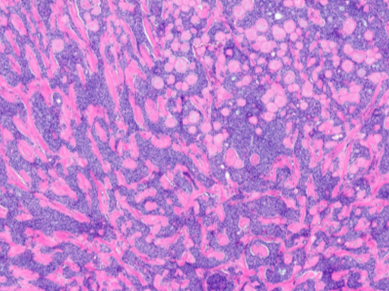Case History:
81-year-old female with a remote history of follicular lymphoma was undergoing evaluation for possible disease recurrence when an incidental right breast mass was identified.




What is the diagnosis?
A. Ductal carcinoma in-situ DCIS
B. Adenoid cystic carcinoma
C. Invasive cribriform carcinoma
D. Invasive ductal carcinoma with cribriform DCIS
Correct Answer: B. Adenoid cystic carcinoma
Discussion:
Adenoid cystic carcinoma (AdCC) of the breast is a rare subtype of mammary carcinoma, accounting for less than 0.1% of all breast cancers. It typically presents as a triple-negative, basal-like tumor but is notable for its excellent prognosis, unlike most other triple-negative breast cancers. Histologically, AdCC of the breast closely resembles its salivary gland counterpart, composed of epithelial cells with varying degrees of glandular differentiation, along with characteristic collections of acellular basement membrane-like material. The tumor is usually negative for estrogen receptor (ER), progesterone receptor (PR), and HER2, confirming its triple-negative status. CD117 (c-KIT) expression is a common but not specific feature of this tumor. A hallmark of both salivary gland and breast AdCC is a recurrent chromosomal translocation t(6;9)(q22-23;p23-24), resulting in a MYB-NFIB gene fusion.
Case contributed by: Rehab Mohamed, M.D., M.S., Women’s Health, Instructor, Fellow